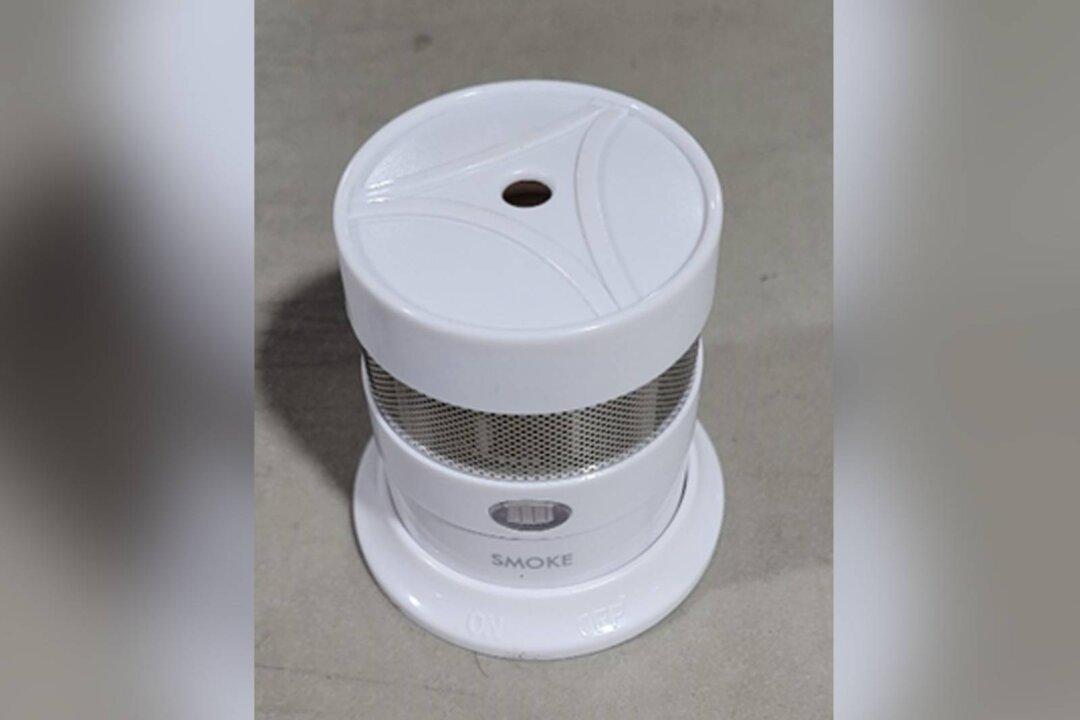Hundreds of thousands of smoke alarms from a Florida-based company have been recalled due to a failure to function and alert product users in case of fire emergencies.
Three61 recalled about 328,000 Samurai Mini Smoke Alarms from the market for failing to activate in the presence of smoke, said a Jan. 16 recall notice from the Consumer Product Safety Commission (CPSC). The products were made in China and sold nationwide exclusively through the Home Shopping Network from July 2020 through November 2024 for $40 to $50.





